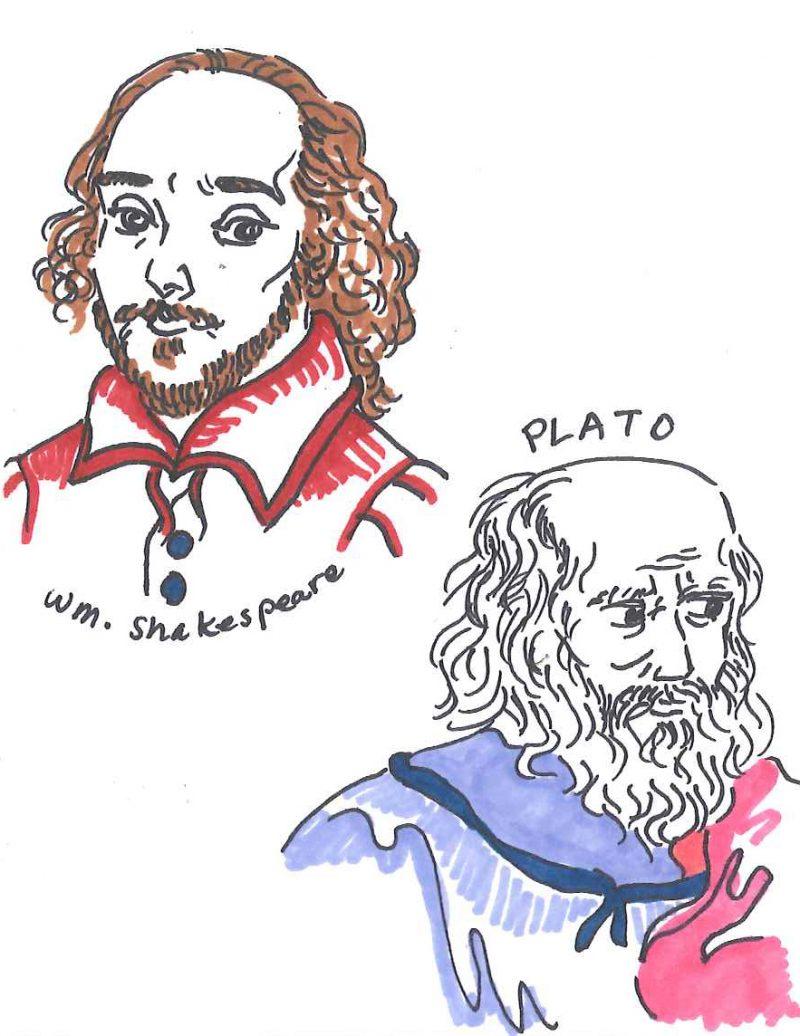Trinity University prides itself on being a liberal arts college. This is publicly and proudly displayed all across campus and the university’s website. A key part of Trinity’s curriculum is the pathways program and clusters. According to the website, “Our pathways curriculum blends the liberal arts and sciences with business and pre-professional programs, enriching our writing, speaking, and problem-solving skills.” During the discussion surrounding the implementation of pathways, many questions were raised. One strong issue taken with the pathways curriculum is that it made it possible for a student to graduate from Trinity University with a liberal arts degree but without having read or engaged with Plato or Shakespeare — two of the foundational writers much of western tradition either originates from or flows through. They used to be staples of a liberal arts education that all students of the liberal arts would have to engage with at some point. But not at Trinity.
Trinity offers a simple and inexplicably weak bandage to this issue. To the public knowledge of the Trinity student community, only one class focuses on the classical canon of Western Tradition — HUMA, the First Year Experience of infamy. The one FYE we are told not to take as prospective students by every single student that we meet during the course of our recruitment by Trinity.
Many students agree that this is a problem and show interest in taking a class on the great books. Trinity has two possible courses of action to rectify this issue with the pathways curriculum. In order for a student to be a true graduate of the liberal arts, they must understand and have engaged with texts and authors upon whose shoulders we all stand in the modern world. If it were not for Shakespeare, Plato, Socrates — the names of great writers roll on — our understanding of the world would be very different.
Trinity, from a minimalist point of view, can make taking one great books class mandatory to graduate from Trinity. While this would not guarantee that a student will engage with a significant amount of sources of the current world, it would be a step in the right direction.
The moderate action Trinity could take is to add a pathways cluster requirement for the great books. Essentially students would be required to take three classes pertaining to the great books and western tradition before being allowed to graduate from Trinity. Undergoing this course of action would ensure that students are properly engaged with Shakespeare and Plato before they are allowed to go into the world as representatives of our school.
The most aggressive action Trinity could take to remedy this current situation is by offering a great books major or minor. A number of other universities have implemented such programs with great success.
Reading the great books is a unique experience that allows students to understand the place and role we have in the world. The great books act as the synthesized knowledge of the past twenty-five centuries. In these books, the past of the world is written and the future is predicted. Reading these books allows us to see how the world was perceived at the time the books were written and that there is nothing new under the sun. A true liberal arts education is not complete without having read Shakespeare and Plato, and Trinity’s curriculum should reflect this. In a valueless world drowning in the death throws of post-modernism, it is more important than ever that we study the great books and great tradition from which we can learn shared values of our community that transcend time.






